Other Self: An Interview with Angie Hobbs
The philosophies of friendship
Jeffrey Kastner, Sina Najafi, and Angie Hobbs
“Most men agree that a true friend is a precious treasure,” Socrates’ student and amanuensis Xenophon records the philosopher observing, “and nevertheless there is nothing about which we give ourselves so little trouble as to make men our friends.” Such tensions—between the utter centrality of friendship to the development of both the individual and society at large and the casual, almost thoughtless way in which so many friendships are made and lost—have animated philosophical discourse since the very beginnings of the western intellectual tradition. The elusive, nuanced nature of philia and its relationship to community (both earthly and otherwise) remained an essential theme for theologians such as Augustine and Aquinas and secular thinkers like Montaigne and Mill, and such questions continue to tantalize contemporary thinkers and politicians today. Angie Hobbs—Senior Fellow in the Public Understanding of Philosophy at the University of Warwick, England—has written widely on the philosophical history of friendship. She spoke with Jeffrey Kastner and Sina Najafi by phone in December 2009.
Cabinet: Can you describe the political and sociological context for how friendship became an important philosophical issue in ancient Greece?
Angie Hobbs: First of all, if you look at the basic political unit, the polis or city-state, it’s relatively small and self-contained, and so you’re likely to bump into the same people most days—that is, if you’re an adult, freeborn male. So you have a network of friendships, and indeed Aristotle says that in an ideal situation, the polis would be constituted by precisely these overlapping circles of friendship—they would be the basic building blocks of your polis, which is a completely different view from the one we hold now. Athens was a participatory democracy for propertied males, and so they meet all these people in the assembly and discuss things together. There are certain institutions such as the “symposium,” or drinking party, and the hetairiai, the comradeships, that contribute to the blurring of private and public friendships. And then you have the input of the philosophers—almost all of whom think that humans are naturally social beings, adapted to live in a polis, and share the feeling that that’s going to fulfill basic psychological needs as well as provide the right environment to exercise key virtues, such as justice, that you can’t practice on your own.
Perhaps most important of all, there is a basic approach to ethics that emphasizes questions of how to live and what sort of person you should be, rather than notions of duty, or rights, or the greatest good for the greatest number that concern us today. The Greek notion of ethics clearly allows space for friendship as a necessary constituent of a good flourishing life, and as crucial in moral and intellectual development. The philosophers were also asking, “Can friendship help me do philosophy?” There are exceptions, but on the whole Plato and Aristotle think philosophy is best done in dialogue between two or more, and of course that’s how we see philosophy in action in Plato’s dialogues. Aristotle seems to argue that while philosophy (viewed as the contemplation of truth and the imitation of God) is ideally conducted on your own, in practice it is usually easier to philosophize in the company of others. So there’s an enormous mix of geographical, social, political, and philosophical factors that make friendship a crucial subject in Athens.
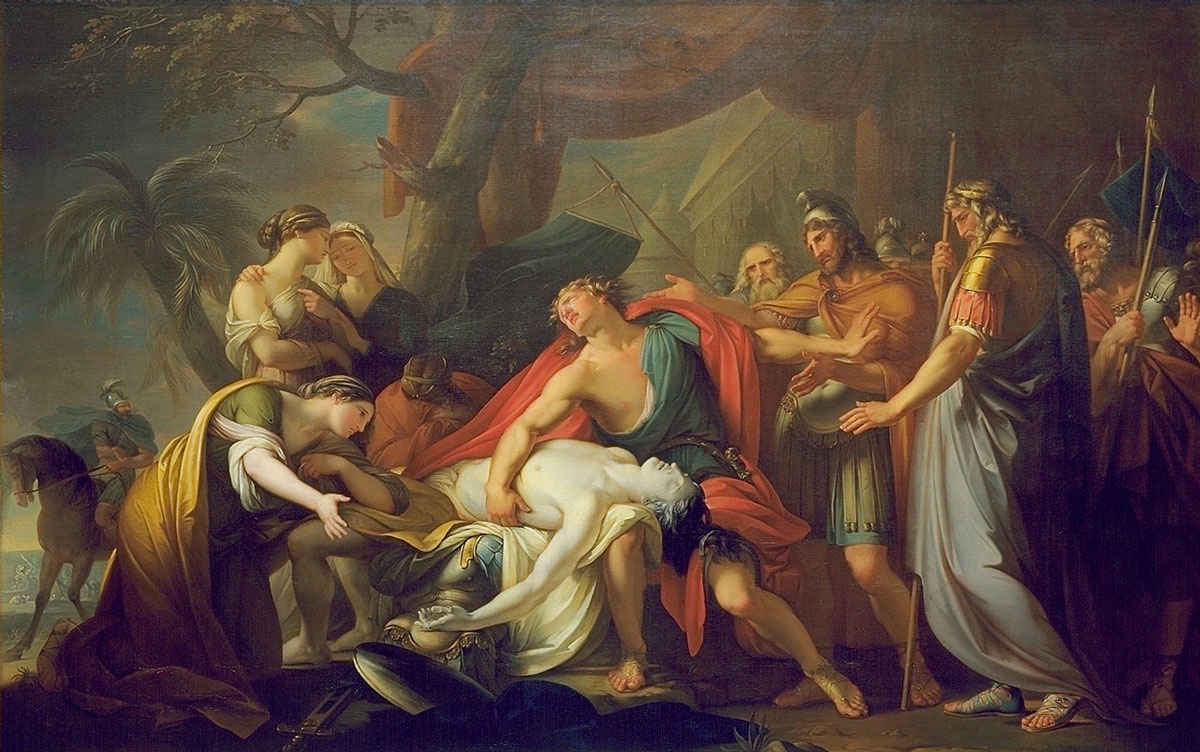
It’s Plato and Socrates that we first think about when we consider the Western philosophical background for friendship—in the Lysis, Plato recounts a conversation between Socrates and a group of young men that both addresses the issue and also stages aspects of friendship within the action of the dialogue.
As always with Plato, you never get things laid out—you see it in action. So we get Socrates’ interpersonal dealings with these young men, and we’re asked about the friendships that develop between them and Socrates, and among themselves, over the course of the dialogue. Is it just friendship in the sense of philia, or are there erotic overtones as well? What are the distinctions between philia and eros? What are the distinctions between the kind of philia involved in male friendships and the kind involved in family relationships? All these questions are acted out as a way to examine a variety of models for why individuals form friendships. The protagonists consider the idea of like being attracted to like, which is a pre-Socratic idea from Empedocles, but reject it on the grounds that such a friendship would produce too much competition and rivalry. They wonder about the Heraclitian view that opposites attract—which was a popular proverb for the ancient Greeks, as it is for us—but throw that out on the grounds that it would mean that the good is attracted to the bad, or the just to the unjust, and that can’t be the case. The model to which they appear most sympathetic is that of friendship between two good people—not because they are alike, but because they are attracted to each other’s goodness. The best kind of friendship isn’t based on utility or pleasure or some particular end, but on appreciation of the other’s goodness, which reflects your own goodness. This is not entirely conclusive, because questions about self-sufficiency linger in the air—do truly good people really need friends? Are they not self-sufficient? This is a problem if friendship is viewed as simply filling a lack, like food or drink. These questions are not entirely resolved, and are complicated still further if we are supposed to be trying to imitate God: surely God has no need of friends.
Were literary accounts of friendship of concern to the philosophers? In the Iliad, for example, you have a model of friendship that’s not very civic-minded, when you think about Achilles saying he would rather have all the Greeks and Trojans die than to see his friend Patroclus hurt. This seems antithetical to the development and preservation of the polis.
The philosophers were mindful of literature, and for the most part found it problematic. It’s interesting that when they see these non-ideal friendships, they often try to eroticize them. Plato presents Achilles and Patroclus as an example of erotic love in his Symposium and, we may infer, therefore potentially more unstable and liable to be the cause of hostility. But in Homer, they are not portrayed as erotic lovers; they’re extremely close and intimate, they could even be regarded as being “in love,” but they’re not portrayed as being in a physical relationship—they both live in their tents with female companions. And it’s not until about the fifth century BCE that you see the eroticization of that relationship. It’s almost as if the Greeks are saying, “We just don’t want philia friendship to be this dangerous and to tempt people away from their civic duties. If it does, it must be because it’s actually eros and therefore allowed to be dangerous.” The quote about Achilles you mentioned, that just runs through the ages, doesn’t it? I’m thinking about E. M. Forster, who wrote in 1951 in Two Cheers for Democracy that if he had to choose between betraying his friend and betraying his country, he hoped he should have the guts to betray his country. That’s an extraordinary thing to say, especially just after all the spy scandals of the 1940s. And so you always have this tension between friendship as the building block and the glue of the state, as Aristotle wants it to be, and then all these literary models where friendship can work against authority, against political stability, and can sometimes be an immensely disruptive force. It’s partly this tension that later prompts the Greek philosopher Epicurus to separate friendship from politics and set up a community of friends in what was called the “Garden”—a real garden, as it happens—outside the polis.
In addition to abandoning the polis for the garden, the Epicurean tradition also has room for different kinds of relationships than one sees in the polis—women, for example, are more present in Epicurus’s scheme than in Aristotle’s.
Women are allowed in the Epicurean setting in two ways. First, wives and children are welcome in the garden, you can bring your family—for Epicurus, friendship is not necessarily antithetical to the family unit. And also women are allowed in their own right. We have, for example, a follower of his called Leontion (a former prostitute, and it’s often former prostitutes who become philosophically trained in ancient Greece, because they’re the only women allowed out of their home and into male environments) who takes an active part in philosophizing. It doesn’t appear that Aristotle envisaged such a scenario in either his theory or his practice, though Plato is interesting because of course he does allow women to be major players in his ideal State, which includes philosopher queens and women in the army—he’s extremely radical in this respect. Another possible alternative tradition is that of Sappho on the island of Lesbos, and her group of close female friends who wrote poetry to each other; they may or may not have engaged in homoerotic affairs, but they were clearly very intimate friends. And the Greeks did revere Sappho’s poetry—she was regarded as quasi-divine. So they knew about these other possibilities for friendship, though they didn’t often make them very explicit.
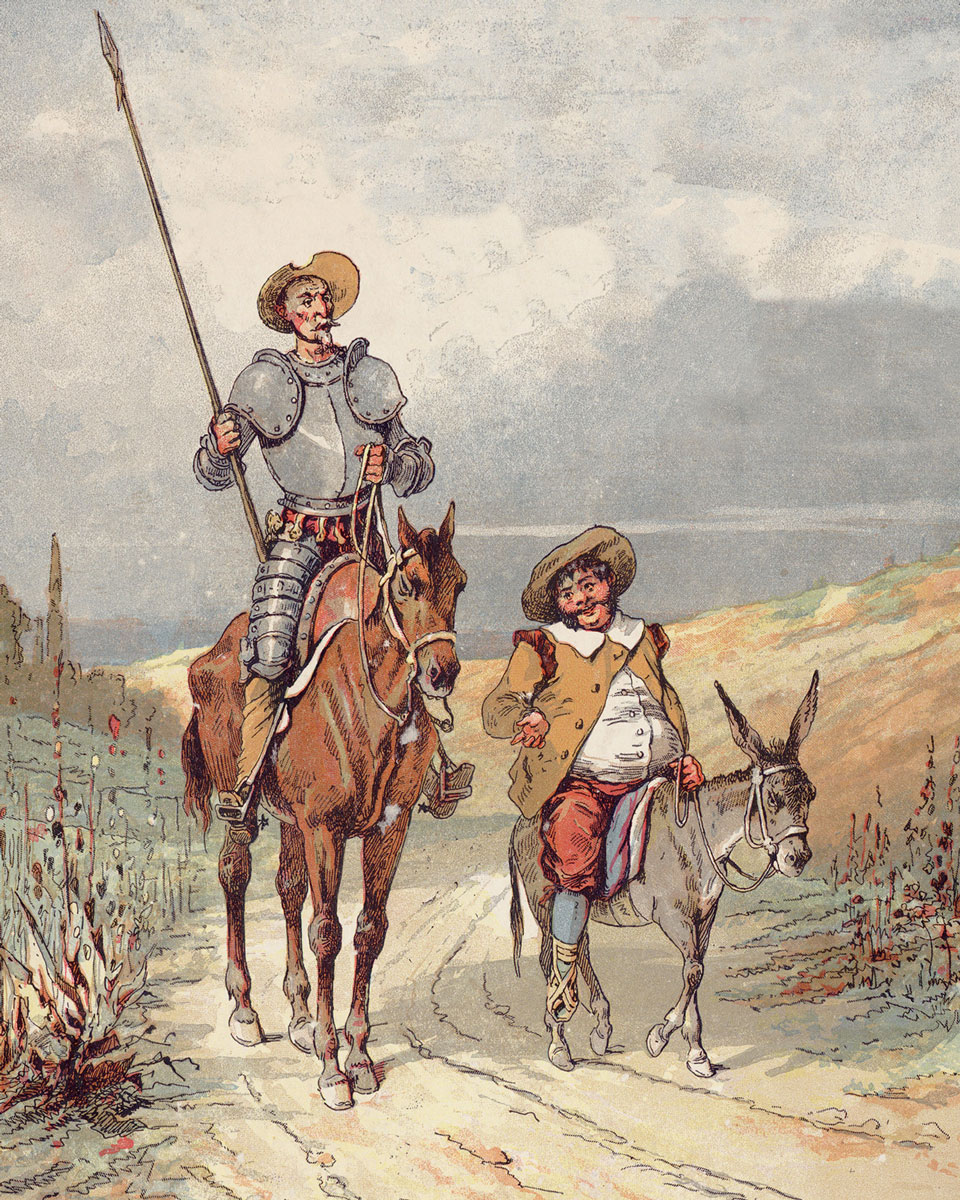
You mentioned the idea of overlapping groups of friends as being central to the way Aristotle conceives of the Greek city-state, but does his scheme for friendship also make room for friendships that aren’t necessarily instrumentalized in a political way?
It does, but it’s important first to be clear about the role Aristotle sees for friendship in political life, where it’s much more than an instrument. I think the core of his thinking here is the notion of trust. Whereas today we tend to shy away from friendship in politics, because we think it’s going be nepotistic or lead to corruption, for Aristotle the ideal is a community composed of good people being friends with good people. He thinks friendship is crucial for politics, because it’s the building block of trust. But you’re right that Aristotle’s analysis of friendship encompasses more than its role in politics. His scheme is slightly different from Plato’s. He describes three kinds of friendship: first, there is the utility model of friendship, where, for example, you work together and are engaged in the same kind of task. And then you’ve got friendships based on shared pleasures, e.g., leisure activities such as sport—and he says sexual friendships would be placed in that category, because he doesn’t think feeling philia for someone precludes feeling eros as well. But he’s concerned that these erotic friendships are liable to come apart when one or both of you stops enjoying the other’s body. And so he says the best kind of friendship is one between two good people where each is simply delighting in the other’s good character—that’s the most stable friendship, because it is based on something stable and not potentially transient utility or pleasure.
What changes occur to the understanding of friendship with the rise of Christianity?
Augustine is obviously an important figure. Before he finds God, he has a very close friendship, and when his friend dies, Augustine has a sort of breakdown. From then on, he was always tormented about whether you had to choose between friendship with a human and friendship with God. Now this whole idea of a personal relationship with God would be absent from most Greek philosophical thinking—the philosophers didn’t generally envisage a God who loved you back or particularly cared about you. Aquinas tries to do something different; he says that actually our love for God, and God’s love for us, is a superior model of a human friendship and the two need not be incompatible. It’s interesting that Aquinas quotes Aristotle saying that the ideal lawgiver should make laws with a view to friendship rather than justice—which may strike us as pretty extraordinary. It’s certainly not the approach (in theory at least) of most lawgivers today.
So with Christianity, you’ve got the possibility that there might be a conflict between one’s devotion to God and one’s devotion to earthly friendships—the idea that you might be being disloyal to God if you spend too much on your human friendships. And then from 1100 CE or so, another problem for friendship comes in, and this is the notion of the “imitation of God,” of trying to make yourself and your life as much like God as possible (an idea which actually has its roots in Plato and Aristotle). But if God is perfect and complete, he presumably doesn’t need friends. Aquinas and Augustine may portray God as being friends with us, but the Christian idea of friendship between the human and God will always be asymmetrical, whereas Aristotle and Plato try to portray the perfect friendship as symmetrical—friends are portrayed as seeing themselves in each other, sometimes even as sharing the same soul.
Cicero had tried to get around the self-sufficiency problem by saying that the good man does not need friends but instead wants friends. Does this move—saying that God wants, but does not need, to be our friend—offer a way out for Christian thinkers?
I think Cicero probably misunderstood what Plato and Aristotle mean by self-sufficiency. Cicero thinks it actually helps if you don’t need to have friends, because that means your friendship can be pure and not tainted by questions of pragmatic utility—you don’t need the other person’s money, or their psychological support—you’re able to get by on your own. Whereas Aristotle clearly says and Plato can be read as implying that we need friendships in order to actualize our faculties, to be fully human. It’s not that we need them in some immediate practical way, but rather to flourish fully as human beings, in all our moral and intellectual capabilities. So Cicero hasn’t countered that richer sense of need—I don’t think his want/need distinction really fully gets to grips with what Plato and Aristotle are on about.
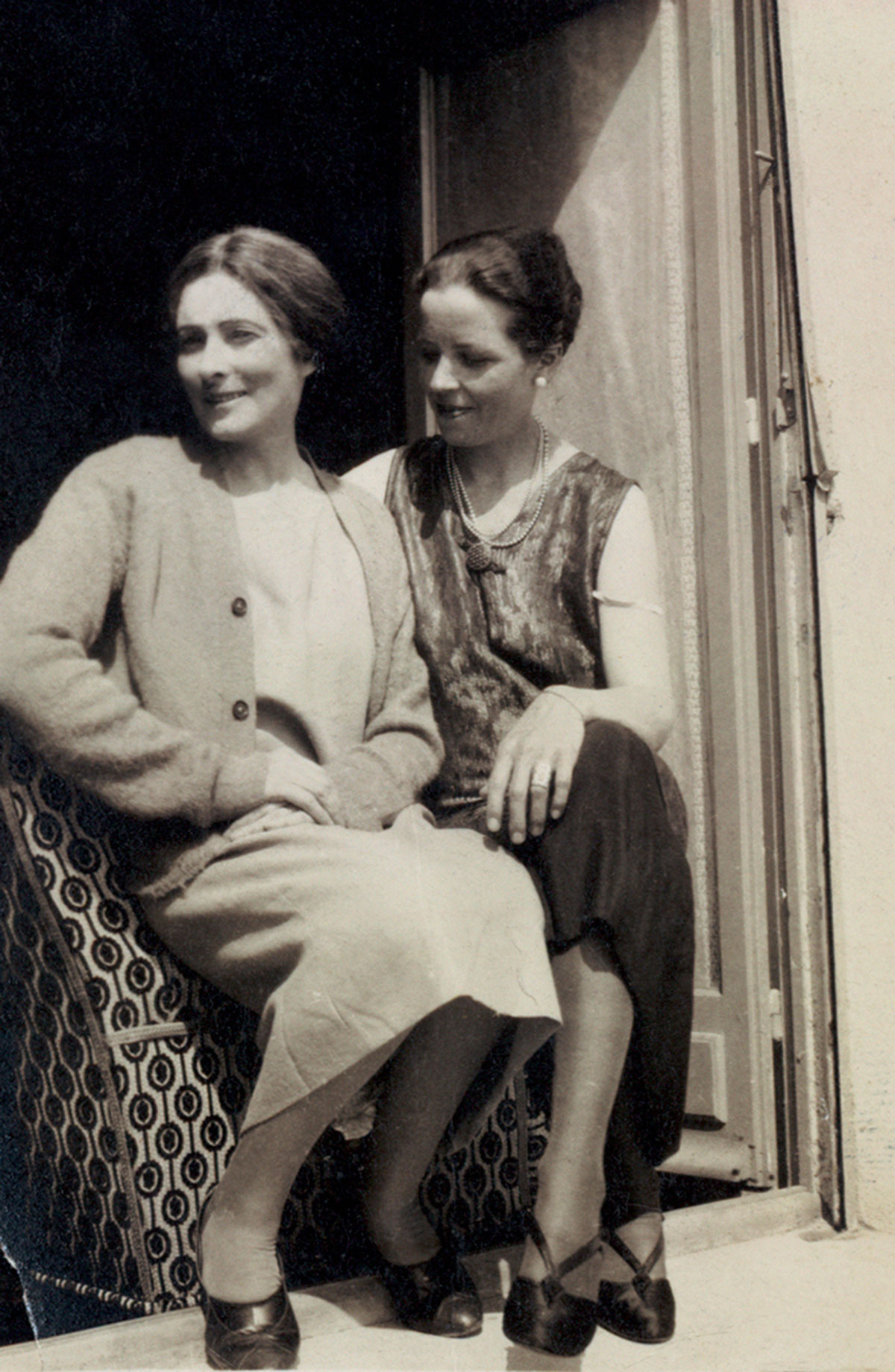
In what ways does the new notion of the human that emerges during the Renaissance alter the Christian framework for understanding friendship?
As you would expect, the Renaissance writers retreat from the hugely powerful and often corrupt institutions of the church and of the political state, which are intertwined and crushing people’s lives, and instead turn toward very intense and personal relationships; smaller, more domestic and more intimate spheres where individuals have more control. It’s at that time that you get these extraordinary and incredibly vivid friendships like that, say, of Erasmus and Thomas More—if you read them now, they’re just so fresh and funny and vibrant, you can absolutely believe in their friendship. This is also the case a bit later with Montaigne and Étienne de La Boétie. Their notion that a friendship can be a retreat from politics but also further your intellectual life, that it can achieve ends beyond the friendship itself, would be familiar to the Epicureans.
So when the polis is increasingly constructed within religious terms, do these friendships begin to operate to some degree in opposition to it, and thus to the original notion of friendship proposed by Aristotle?
Absolutely. You’ve got people who are disregarding the polis as a context for friendship and for intellectual life, and this was seen as pretty threatening to the powers that be. These friendships often take place between people of different countries and cultures. For example, Thomas More’s friendship with a man called Peter Gilles whom he met in Antwerp gives rise to the early sections of Utopia. And there’s the correspondence between More and Erasmus, whose Moriae encomium (“In Praise of Folly”) has a pun in its title, as the title can of course also be read as “In Praise of More.” So I think the question of whether the polis is best constituted by these circles of friends depends in large part on the nature of the polis itself, and here we have a model that’s more from Epicurus than from Aristotle.
A lot of these friendships around this time are very particular and vivid. In his essay “On Friendship,” for example, Montaigne says that his deep friendship with the deceased La Boétie has no other model than itself, that it can be compared only to itself. He writes: “If you press me to tell why I love him, I feel that this cannot be expressed except by answering: Because it was he, because it was I.” Is this notion of an individual friendship as something indefinably unique and resistant to theory an idea that comes up with modernity?
You’ve certainly got an increasing emphasis on the unique, particular individual. The Greeks did talk about that in the context of philia and eros: they wondered whether you were attracted to a person’s goodness or simply their uniqueness. Is your friend replaceable? In Plato’s Phaedo, Socrates—who is about to be given the hemlock in his prison cell and is surrounded by all his friends grieving his imminent death—says rather insensitively that he won’t miss his friends because he’ll replace them with other friends in the afterlife. So Socrates’ view is that though a person is important, they are replaceable, not unique, because it’s the goodness and the beauty of the person that you love; their goodness and beauty are imperfect instances of the perfect forms of goodness and beauty. And in Plato’s dialogue in the Symposium (which is mainly about eros rather than philia) a number of the speeches discuss whether we’re attracted to particularity as such. Different people give different answers, but the priestess (Diotima) representing Socrates’ view very explicitly talks about erotic love and friendship as being replaceable.
This whole question of particularity comes up again in the sixteenth century, emblematized by Montaigne, and then it’s going to be dramatically challenged by the dominant philosophers who come after him. When we get to the duty-based ethics of Kant and the utilitarianism of Bentham, the challenge is that we seem to have two philosophies based on notions of the universal, the impartial, and the impersonal, so what room is there in them for friendship? Whereas with Montaigne, you have friendship in tension with the political and religious life of the state, about a century and a half after his death you have friendship in tension with the dominant philosophies of the day as well. Friendship often has to struggle to find a place for itself.
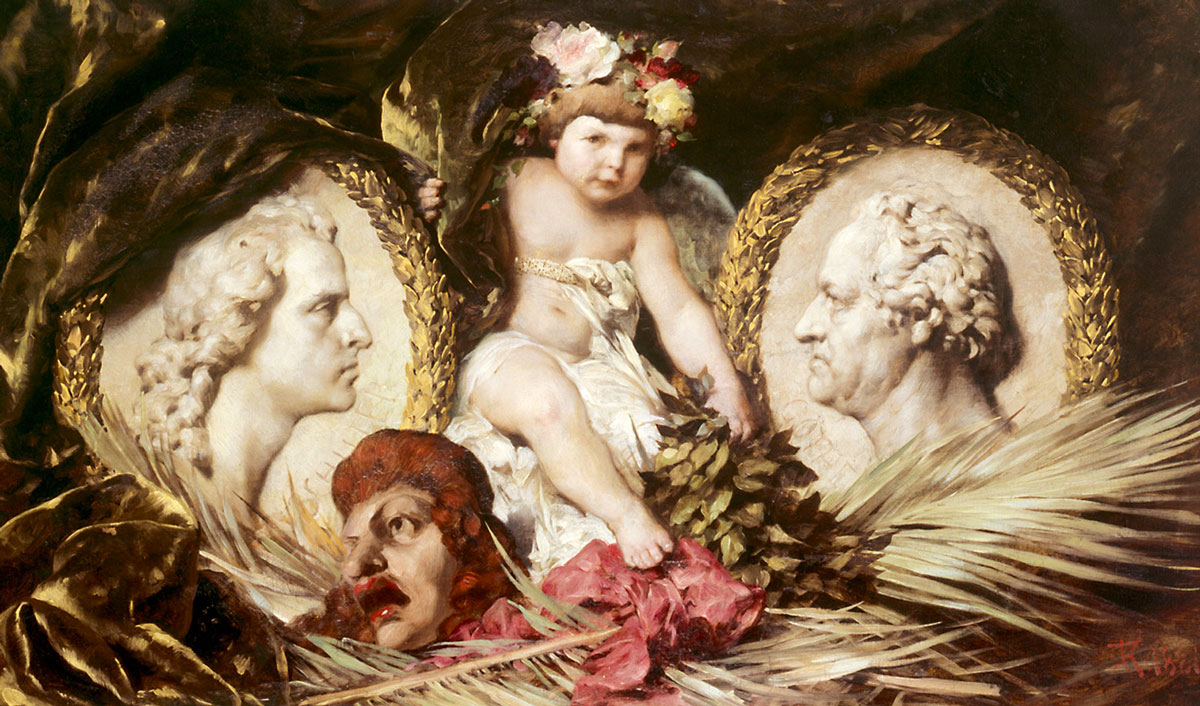
For Kant, do the bonds of friendship make it hard for universal ethical decisions?
He doesn’t think about it a great deal, and some people have said that’s because there is an inevitable tension between friendship and his notion of the categorical imperative: act only on that maxim which you can at the same time will as universal law. So to be truly ethical, you should be impersonal and impartial and operate on the basis of justice and human rights, and this duty-based (deontological) framework is a very different basis for philosophy than the ancient Greek approach, which was based on the notion of the individual flourishing and living a good life. It’s much easier to fit the idea of friendship into the philosophical structure of ancient Greek ethical thought than it would be for a deontologist like Kant.
Montaigne at one point wonders: if his friend ordered him to burn down a house, would he obey? He says he would, although he also points out that the question doesn’t really make sense because it would be like disobeying your own will to burn down a house. But presumably this kind of confession would be a problem for Kant.
Well, it’s certainly a very troubling moment for ethics. Montaigne’s notion of friendship is almost a religion, or a cult of friendship that takes the place of conventional moral wisdom. But if you look through the history of western thought, you’ve always got the question of whether friendship is a nurturing environment for the virtues, or whether it’s profoundly subversive. In Montaigne, you get more of the subversive approach.
You mentioned utilitarianism. How do Bentham and Mill deal with the question of how friendship might fit into their systems of thought?
They’re going to give slightly different answers. With Bentham, the challenge for utilitarianism is whether there’s any space for friendship in it. If you look at his version of act utilitarianism, you take any act and apply different yardsticks to it to work out whether the greatest good of the greatest number is increased or decreased by this act. Again, it’s universal and impartial—not based on notions of rights, which he thinks are nonsense, but it is absolutely a universal code. And friendship gets in the way of that. Bentham makes no distinction between different kinds of pleasure, but Mill—basing his argument on Book 9 of Plato’s Republic—says we have the “higher” pleasures of the intellect and the imagination and the “lower” pleasures of the body, and friendship arguably counts amongst the “higher” pleasures (as opposed to erotic pleasure, which Mill is always uncomfortable about).
So Mill makes an effort to allow for friendship, and from about 1970 onward, there have been a number of utilitarians who have tried to show in the long run how the maximization of good will be increased if individuals are motivated not by universal, impersonal principles but out of care for particular individuals, for irreplaceable friends. In other words, some philosophers have tried to make a distinction between the goal of utilitarianism, which is the greatest good of the greatest number, and its motivation; so it’s okay for the utilitarian to act from the motivation of caring for a unique friend because if all humans do that, then the greatest good of the greatest number will overall be served. But I’m not sure if that’s not a bit of a cop-out, because although it allows space for friendship in utilitarianism, it does so only because the good overall is increased—if that were not the case, then particular friendships would go out the window. There is still a tension I think—and I think a similar tension exists in the work of utilitarians who argue for what they call character or virtue utilitarianism, in which a capacity for friendship could be part of the kind of character which will, in the long run, make for the greatest overall good. Because again, friendship and the virtues are there because they’re serving another goal—they’re not intrinsically valuable in the way most proponents of the ethics of flourishing (of which I would be one) would want to say they are.
In researching this issue, one of our greatest surprises was finding out that some of the early philosophers of political economy, like Adam Smith, believed that capitalism would in fact liberate friendship, because the pure exchange of money that would save us from having relationships with the people who made things and sold them to us would open up the space for deeper, more profound friendships free from all transactional aspects.
It’s a rich thought. It fascinates me how the conception of capitalism—what its function is, what it can do, what it’s good for and bad for—has changed so much since the end of the seventeenth century. I know Smith is writing a century after that, but if we look at modern capitalism as starting around 1680 or 1690, which is when the London stock exchange gets started, yes, it’s seen in this very rosy light: it will give us more time and more leisure so we can amble off to the coffeehouse with our friends and have a smoke and talk about David Hume’s latest work or whatever, and it’s not going to taint our friendships. It’s true that there was a lot of pragmatism in friendship in a world without a capitalist system or a welfare state; you were hugely dependent on your friends for money and help with disasters. But of course, capitalism hasn’t turned out how Smith imagined it at all. The system of capital hasn’t given us more time to escape from money, it’s given us less private space; rather than siphoning off mercantile transactions and putting them in a locked room of their own, the mercantile sensibility seems to have infected the way people think and act about all relationships.
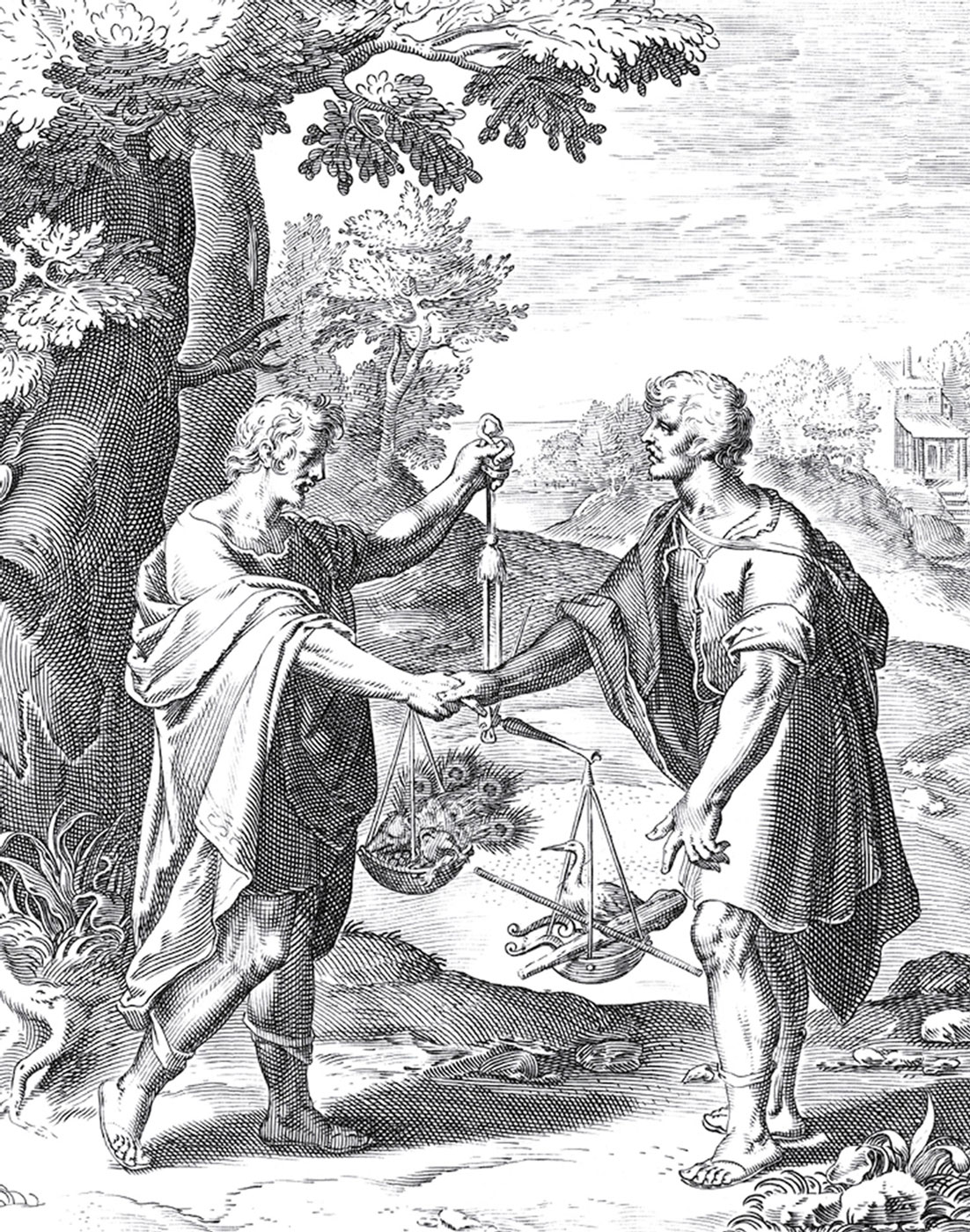
Why do you think friendship has come back onto the philosophical agenda now? What is at stake in this return to the question of friendship?
I think you’ve got two or three things that start to come into play around 1970 or so. First, there’s a new swell of interest in ancient Greek philosophy, in the ethics of flourishing and virtue, and this hugely influenced communitarian ethics and people like Alasdair MacIntyre. For about 150 years before that, there was this battle between deontological ethics, based on Kant, and a utilitarian ethics, based on Bentham and Mill, and these two models and the tensions between them dominated philosophy as well as political and economic life. That starts to change in about 1965 or 1970, with people saying, “Wait, there’s a whole other ethical and political tradition and maybe it can help us with this apparent impasse between deontology and utilitarianism.” As it happened, this renewed interest in an agent-centered ethics particularly influenced right-wing political thinking, but there could perfectly well be a left-wing ethics of flourishing and virtue too. Then there’s the work being done on evolutionary biology—how friendship fits into the evolutionary picture and how it might work to further the survival of the species.
And the third thing is that in this same period, you have the enormous input of second-wave feminists and their approach to ethics. And I think we should particularly look at the work of the developmental psychologist Carol Gilligan here. She was a student of Lawrence Kohlberg, but reacted strongly against his Kantian rights-and-justice-based ethics and his hierarchy of ethical and psychological development. Just to sketch it very roughly, Kohlberg’s research led him to theorize six stages of moral and intellectual development. I won’t go through all of them, but the very top stage is essentially that of a universal, impartial, impersonal ethics based on rules and rights and justice. And with reasoning techniques that match that. Kohlberg claimed that very few people get to the top of the ladder and, controversially, the ones that do are nearly always male. Women, meanwhile, usually stop at rungs three or four, based on notions of social convention and agreement.
Gilligan has a number of problems with this (including the claim that Kohlberg mainly excluded girls and women from his experiments) but her central argument is that even if it could be shown that women on the whole did not get to the “top” of this ladder of reasoning and ethical development, that wasn’t because of a lack of reasoning power or of ethical sensibility; it was because they had different concerns and goals. Women didn’t often want to reason in this universal, impartial, and impersonal way based on rigid rules related to justice and rights; instead they were more interested in what she called an “ethics of care”: they often used reason not to reach right or wrong answers but to resolve tensions and conflicts. Her book on this, In A Different Voice, is in many ways a flawed work but it really shook up philosophy, particularly with this notion that we needed to think about bringing gender back into the picture again when considering questions of ideal human intellectual and ethical development. She hedges her bets on whether the differences are biological or cultural (though she tends to think they are mainly cultural), but she thinks that by concentrating less on rules and rights and more on notions of community, care, problem resolution, and different ways of approaching ethical dilemmas, we may uncover a very different way of living and thinking in which there is much more space for friendship.
Angie Hobbs, an academic and broadcaster, was recently appointed Senior Fellow in the Public Understanding of Philosophy at the University of Warwick. She has published widely (as Angela Hobbs) in the fields of ancient philosophy and ethics, including Plato and the Hero (Cambridge University Press, 2000). She is currently producing a new translation of, and commentary on, Plato’s Symposium for Oxford University Press.
Jeffrey Kastner is a Brooklyn-based writer and senior editor of Cabinet.
Sina Najafi is editor-in-chief of Cabinet.
Spotted an error? Email us at corrections at cabinetmagazine dot org.
If you’ve enjoyed the free articles that we offer on our site, please consider subscribing to our nonprofit magazine. You get twelve online issues and unlimited access to all our archives.